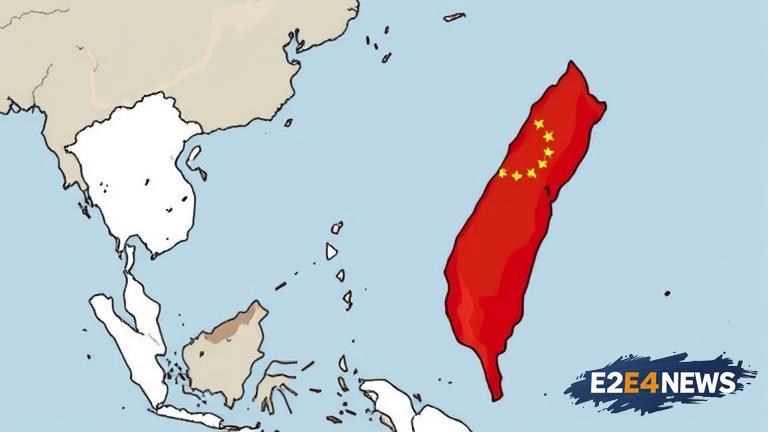The United States has recently expressed its desire for clarity from its allies regarding their stance on a potential war over Taiwan. This move has sparked a significant amount of diplomatic tension in the region, with many countries being forced to re-evaluate their positions on the matter. The US has been seeking to strengthen its alliances in the Asia-Pacific region, particularly in the face of growing tensions with China. However, the issue of Taiwan has proven to be a major point of contention, with many countries being reluctant to take a firm stance. The US has been clear in its support for Taiwan, but it is seeking more concrete commitments from its allies in the event of a conflict. This has led to a significant amount of debate and discussion among diplomats and policymakers, with many arguing that the US is seeking to create a united front against China. Others have argued that the US is simply trying to protect its own interests in the region, and that its demands for clarity from its allies are unreasonable. Despite these criticisms, the US remains committed to its goal of seeking clarity from its allies on the issue of Taiwan. The US has been engaging in a series of diplomatic talks with its allies, including Japan, South Korea, and Australia, in an effort to clarify their positions on the matter. These talks have been ongoing for several months, and it is unclear when a resolution will be reached. The issue of Taiwan is a highly complex and sensitive one, and it is likely that it will continue to be a major point of contention in the region for some time to come. The US and its allies will need to navigate this issue carefully, taking into account the potential consequences of their actions. The situation is being closely watched by China, which has made it clear that it will not tolerate any interference in its internal affairs. The US and its allies will need to balance their desire to support Taiwan with the need to avoid provoking China. This will require a delicate and nuanced approach, one that takes into account the complex geopolitical dynamics at play. The US has a long history of supporting Taiwan, and it is likely that this support will continue in the future. However, the US will need to be careful not to overstep its bounds, and to ensure that its actions are in line with the wishes of the Taiwanese people. The situation is highly fluid, and it is unclear what the future holds. One thing is certain, however: the issue of Taiwan will continue to be a major point of contention in the region, and the US and its allies will need to navigate it carefully. The US is seeking to create a united front against China, but it is unclear whether this goal is achievable. The US will need to work closely with its allies to clarify their positions on the issue of Taiwan, and to develop a coordinated response to the growing tensions in the region. This will require a significant amount of diplomatic effort, and it is unclear whether the US will be successful in its endeavors. The situation is being closely watched by policymakers and diplomats around the world, and it is likely that it will continue to be a major point of discussion in the coming months and years.
